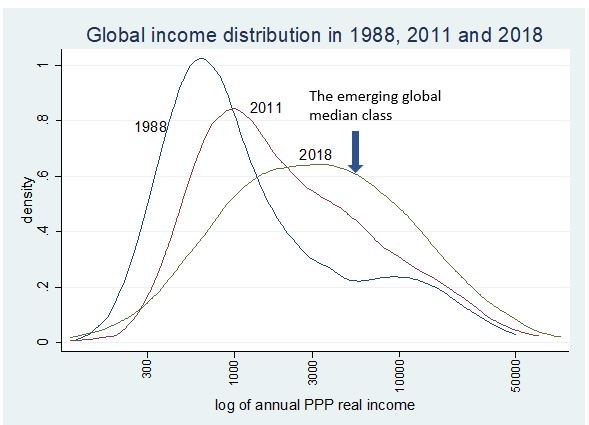Eurodad’s analysis of the recent autumn meetings of IMF and World Bank: on the institutions’ inability or unwillingness to deal with the difficult situation of to-day and on the need for systemic reform
Author: Francine (page 48 of 90)
This pamphlet argues that poverty and inequality are interlinked, both determined by how the products of
economic and social activity are shared.
Read the interesting paper by Stewart Lansley
On this international day against poverty, here a brand paper of Development Pathways!
“Universality, or the achievement of universal social protection, has been endorsed by the
international community and in the region as a key objective of social protection. Solidarity
and trust in public systems, including through universal social protection, will underpin the
advancement of the 2030 Agenda for Sustainable Development. However, understanding often
remains unclear around what universality entails in terms of systems, schemes, combinations
of non-contributory and contributory benefits, and eligibility.”
Making public contracts for private firms conditional on collective agreements can help stem the falling labour share.
Read the article on Social Europe
To win power, progressive leaders must articulate a coherent economic policy, focusing not only on redistribution but also value creation.
Yet another confirmation of what Global Social Justice has been saying for years: social justice is about redistribution PLUS value creation.
Toward a progressive economic agenda – Mariana Mazzucato (socialeurope.eu)
According to Branco Milanovic: “Most extraordinary change in only 30 years, probably the greatest over such a short period ever. The shape of the global income distribution has totally changed: notice the new thickness in the middle, btw $PPP3k and $PPP10k where in 1988 there were very few people.”

A critical analysis of the World Bank’s ‘progressive universalism’ and how misleading it is!
Daisy Sibun is the author of ‘this paper which critically analyses the justification through which the World Bank continues to promote poverty targeted programmes – despite its more recent high-level support for the idea of universal social protection – and contrasts it with the human rights-based approach to social protection, as promoted by the ILO.
Most interesting!
Building comprehensive care systems that seek to reduce the unpaid care work burden of women in
households and expand paid care work that recognizes and pays for care giving skills will have to contend
with the question of funding for services and ownership of facilities as well as the entities that will
govern service provision. It is important, therefore, to understand how health care has come to be
marketized, privatized, and ultimately financialized. Understanding the process that health care sectors,
especially its mature segments, have gone through can help policy makers redefine recovery through
care provisioning early on.
Read the paper from Global Policy Watch
Some of the nations most vulnerable to climate change face a sharp rise in debt service payments in the coming two years, hampering their ability to invest in climate proofing and shoring up their economies, a research report found.
The Vulnerable Group of Twenty (V20) – a group of 55 economies exposed to the fallout from climate change – expect debt service payments to rise to $69 billion by 2024 – the highest level in the current decade, according to calculations from the V20 and the Boston University Global Development Policy Centre.
Read the article
The World Bank’s new ‘Compass’: ‘Charting a Course Towards Universal Social Protection: Resilience, Equity, and Opportunity for All, known as the Social Protection and Jobs Compass updates the World Bank strategy for social protection amid rapid change both within the sector and beyond. The Compass puts at its heart the vision of universal social protection. It recognizes that the progressive realization of universal social protection, which ensures access to social protection for all whenever and however they need it, is critical for effectively reducing poverty and boosting shared prosperity.’
Read the full report
© 2025 Global Social Justice
Theme by Anders Noren — Up ↑


